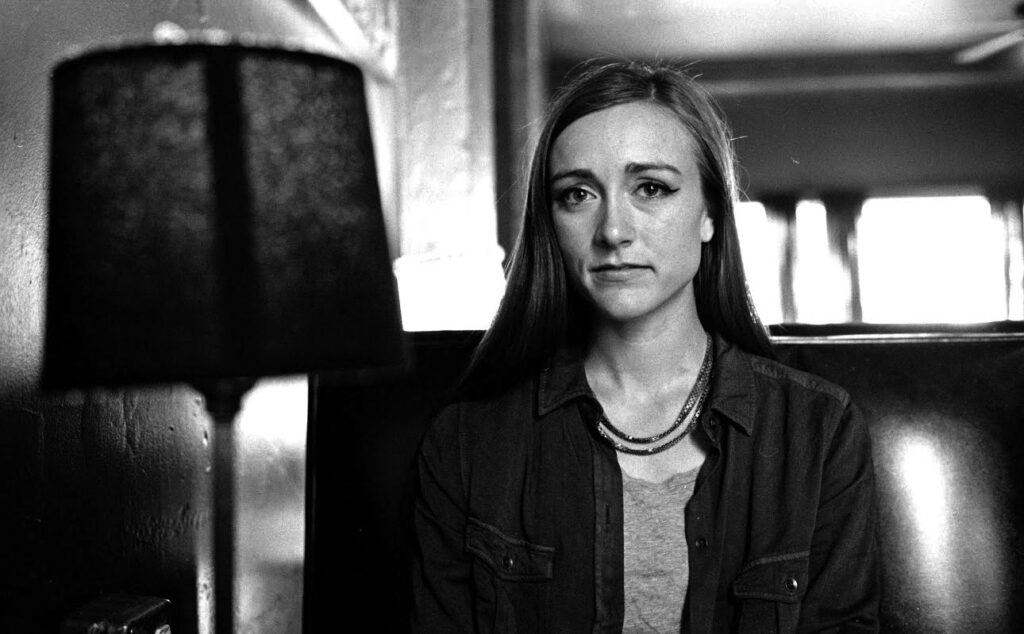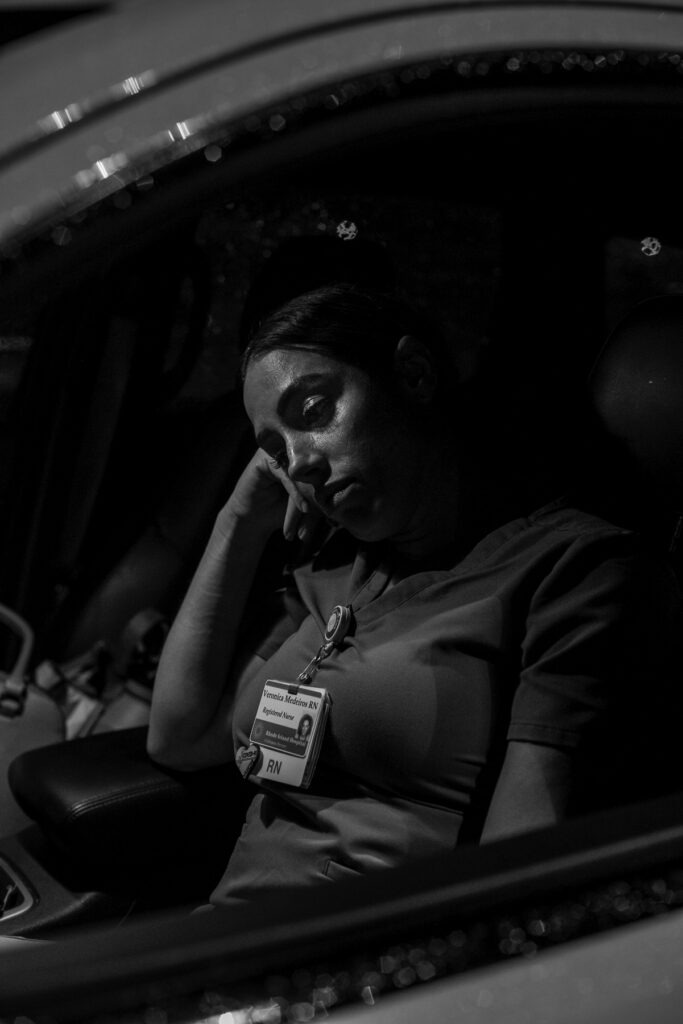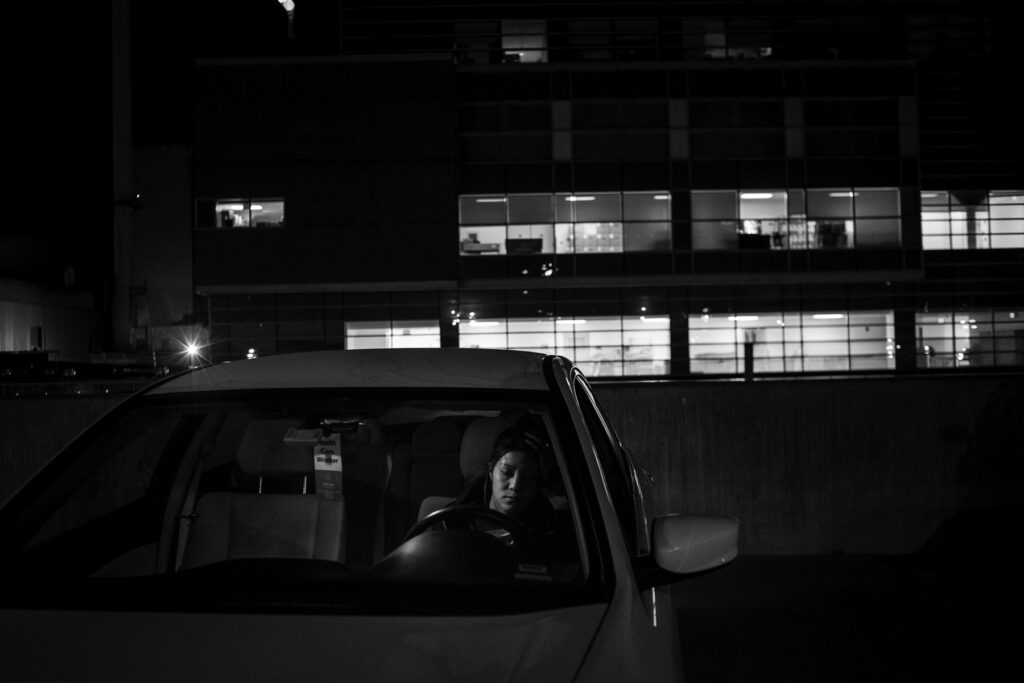
Alex Potter almost dropped out of nursing school. “It was Iraq and Afghanistan prime time,” she said about her time in school. “I was following these photographers who were in those areas, and I thought their work was amazing. I loved travel and learning new languages, and really wanted to do that.”
But in 2011, she completed nursing school despite her reservations, and began looking for a nursing position in intensive care, which proved to be elusive. So she flew to Jordan. “There was no planning involved whatsoever,” she said. She wasn’t entirely untethered in Jordan, however. She studied there in college and still had connections that she rekindled when she arrived. And then she started taking photographs.

“Photojournalism is like any other arts career,” she explained. “You have to put your own money into creating projects to sell.” So she supported herself for several years by cycling between pursuing photojournalism projects in the Middle East, and when she ran out of money, taking travel nurse contracts to build both her bank account and her experience. “A lot of photojournalists have a side hustle, often in copy editing or photo editing. For the first few years at least, I viewed nursing as my side hustle.”
Eventually, that side hustle brought her to Rhode Island Hospital’s ER just as COVID was picking up steam, and that’s where her two passions collided. “I didn’t have the time or energy to take on a photo assignment, but wanted to give people a sense of the exhaustion nurses were feeling,” she said. So she took a series of photographs of her colleagues as they left their 12-hour shift and entered the sanctuary of their car. “I always loved driving home,” she said. “When you get home, you’re nervous that you could contaminate your partner or family, but in the car you can relax for a little while.”

As a healthcare worker who empathizes with and shares her colleagues’ emotions, Potter’s photo series presented a unique opportunity for her to support other nurses. “I hope that having my colleagues slow down and be photographed helped them look at things in a different way or give themselves permission to take a breath, be alone, and feel that it’s okay to have that space for themselves.”
To see more of Alex Potter’s work, follow her @alexkpotter.